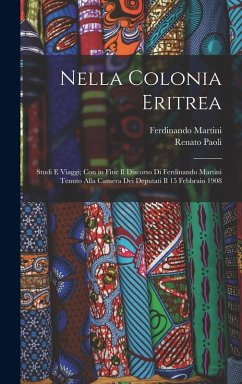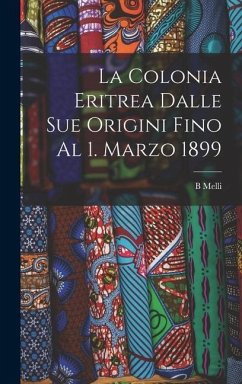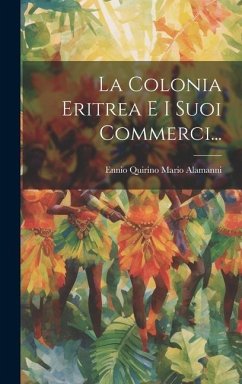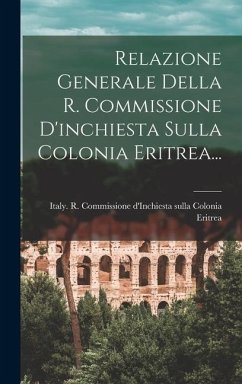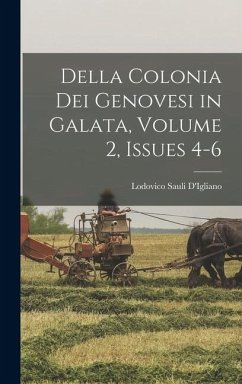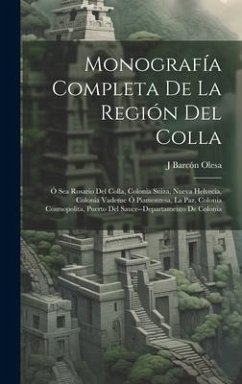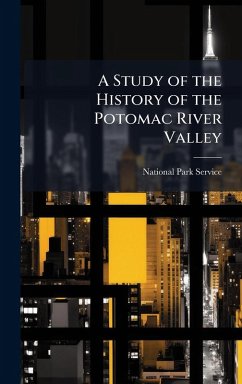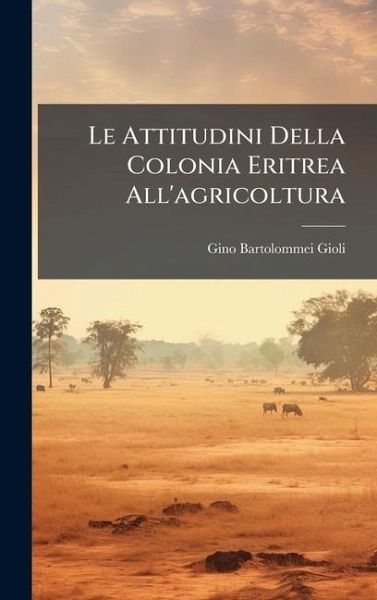
Le Attitudini Della Colonia Eritrea All'agricoltura
Versandkostenfrei!
Versandfertig in über 4 Wochen
28,99 €
inkl. MwSt.
Weitere Ausgaben:

PAYBACK Punkte
14 °P sammeln!
"Le Attitudini Della Colonia Eritrea All'agricoltura" by Gino Bartolommei Gioli explores the agricultural potential of the Eritrean colony. This work, presented to the R. Accademia dei Georgofili in 1902, provides insights into the natural resources and agricultural possibilities of Eritrea under Italian colonial rule. Gioli's analysis offers a valuable historical perspective on the economic considerations and colonial strategies of the time. The book is a significant resource for understanding the intersection of colonialism, agriculture, and economic development in early 20th-century Eritrea...
"Le Attitudini Della Colonia Eritrea All'agricoltura" by Gino Bartolommei Gioli explores the agricultural potential of the Eritrean colony. This work, presented to the R. Accademia dei Georgofili in 1902, provides insights into the natural resources and agricultural possibilities of Eritrea under Italian colonial rule. Gioli's analysis offers a valuable historical perspective on the economic considerations and colonial strategies of the time. The book is a significant resource for understanding the intersection of colonialism, agriculture, and economic development in early 20th-century Eritrea. This work has been selected by scholars as being culturally important, and is part of the knowledge base of civilization as we know it. This work was reproduced from the original artifact, and remains as true to the original work as possible. Therefore, you will see the original copyright references, library stamps (as most of these works have been housed in our most important libraries around the world), and other notations in the work. This work is in the public domain in the United States of America, and possibly other nations. Within the United States, you may freely copy and distribute this work, as no entity (individual or corporate) has a copyright on the body of the work. As a reproduction of a historical artifact, this work may contain missing or blurred pages, poor pictures, errant marks, etc. Scholars believe, and we concur, that this work is important enough to be preserved, reproduced, and made generally available to the public. We appreciate your support of the preservation process, and thank you for being an important part of keeping this knowledge alive and relevant.



